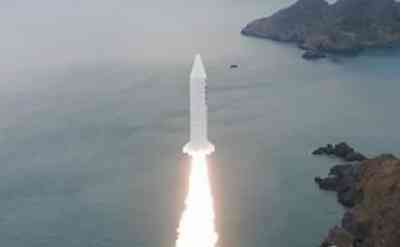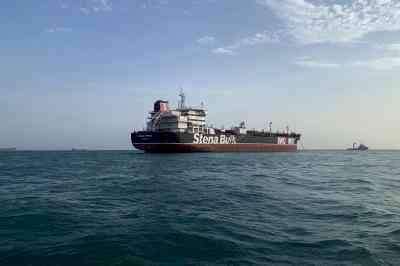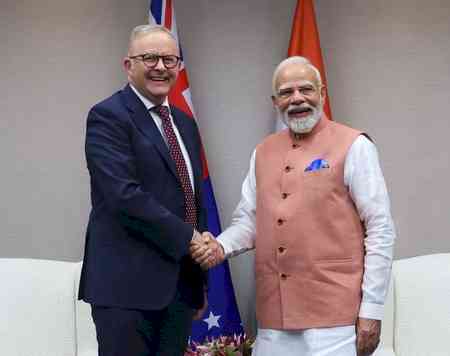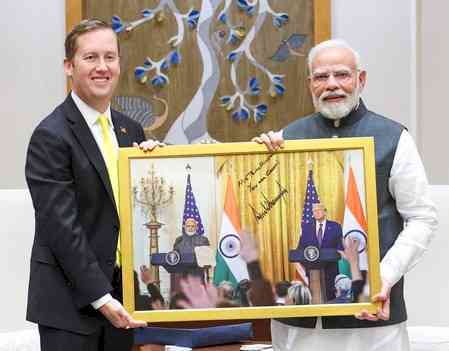S.Korea successfully conducts test flight of solid-fuel space vehicle
South Korea on Friday successfully conducted a test flight of a solid-fuel space launch vehicle, the defence ministry said, nine months after its first test of the homegrown rocket.

Seoul, Dec 30 (IANS) South Korea on Friday successfully conducted a test flight of a solid-fuel space launch vehicle, the defence ministry said, nine months after its first test of the homegrown rocket.
The state-run Agency for Defence Development (ADD) carried out the test as part of efforts to strengthen "independent" space-based reconnaissance and surveillance capabilities, according to the ministry. It did not disclose the venue of the test.
"This flight test is a follow-up to the test on March 30 and we will achieve progress through the development process over the next several years," the ministry said in a text message sent to reporters, reports Yonhap news agency.
It added, "Our military will double down on efforts to reinforce defense capabilities, including for the space domain."
The test came as North Korea has been pushing to acquire a solid-fuel long-range missile and a military reconnaissance satellite.
In March, the ADD carried out the first test of the indigenous solid-fuel space rocket at a testing site in Taean, 150 kilometers southwest of Seoul, to confirm its capabilities.
The rocket is designed to put a small satellite into a low Earth orbit for surveillance operations. Compared with liquid-fuel space vehicles, solid-fuel ones are known to be usually simpler and more cost-effective to launch.
The ministry has said it plans to launch an actual satellite mounted on the rocket in the future following additional development procedures.
Seoul's space rocket project gained momentum after Seoul and Washington agreed last year to lift the "missile guidelines" restrictions that had barred the South from developing or possessing ballistic missiles with a maximum range greater than 800 kilometers.



 IANS
IANS 










